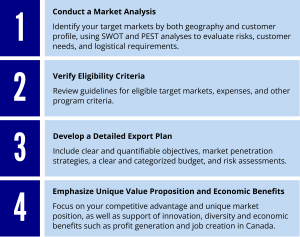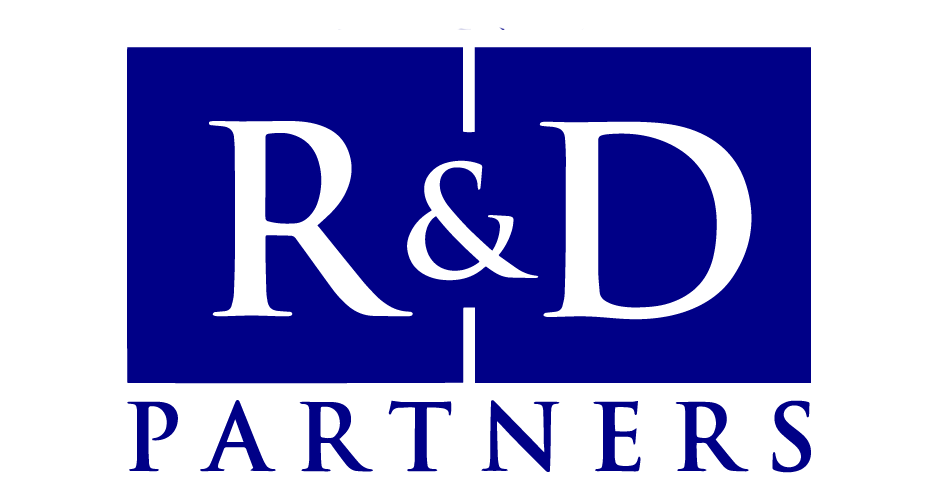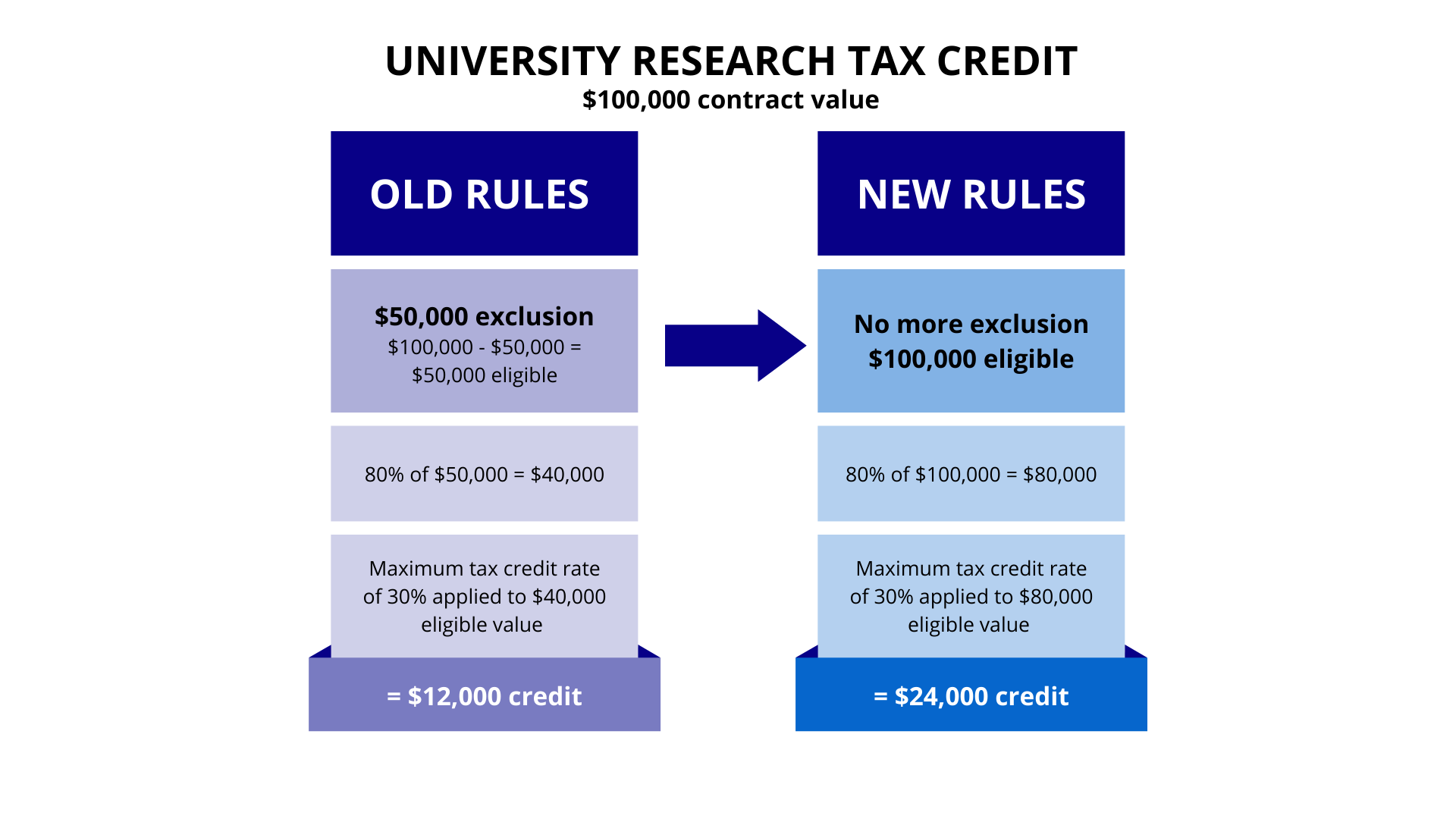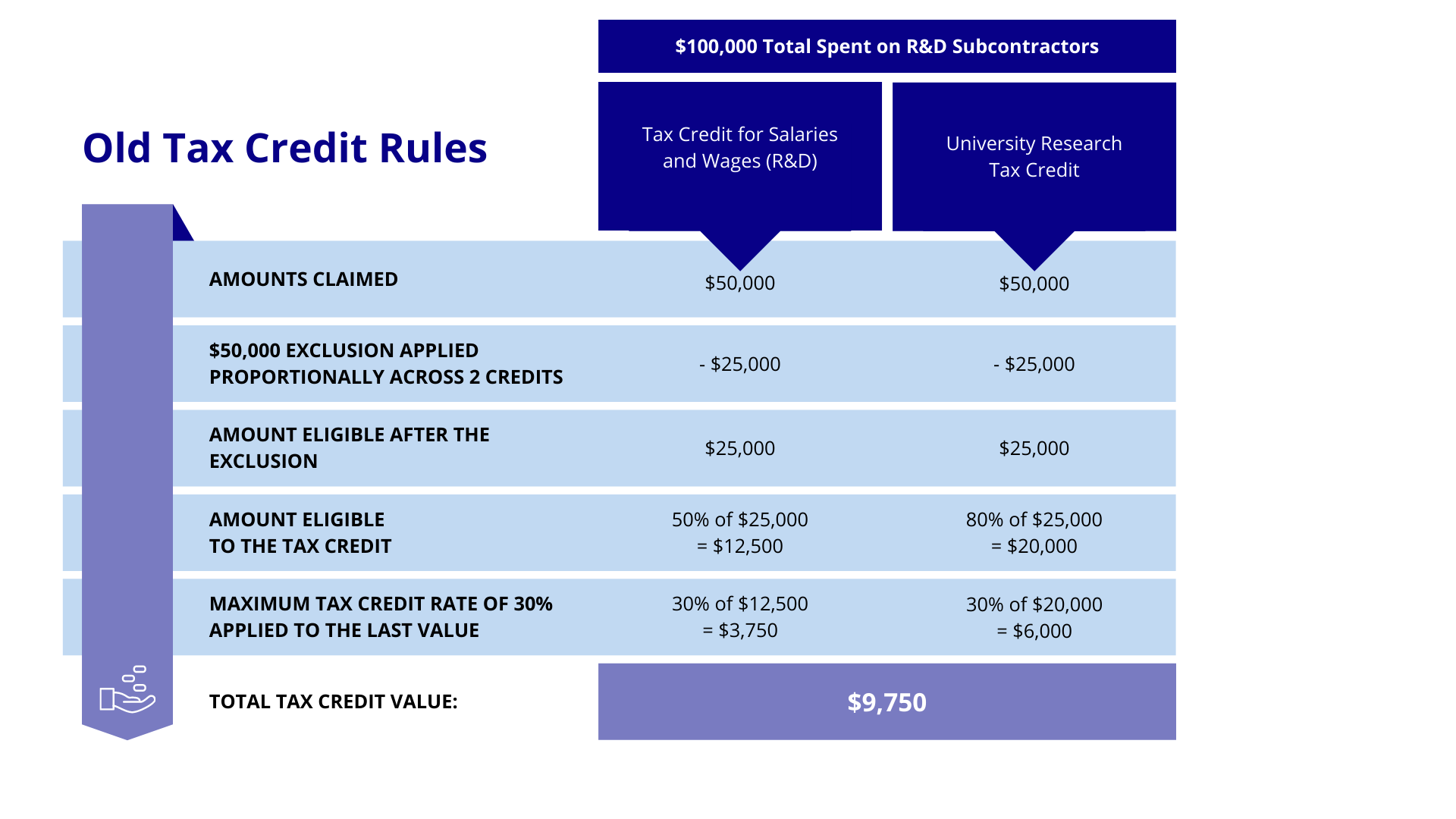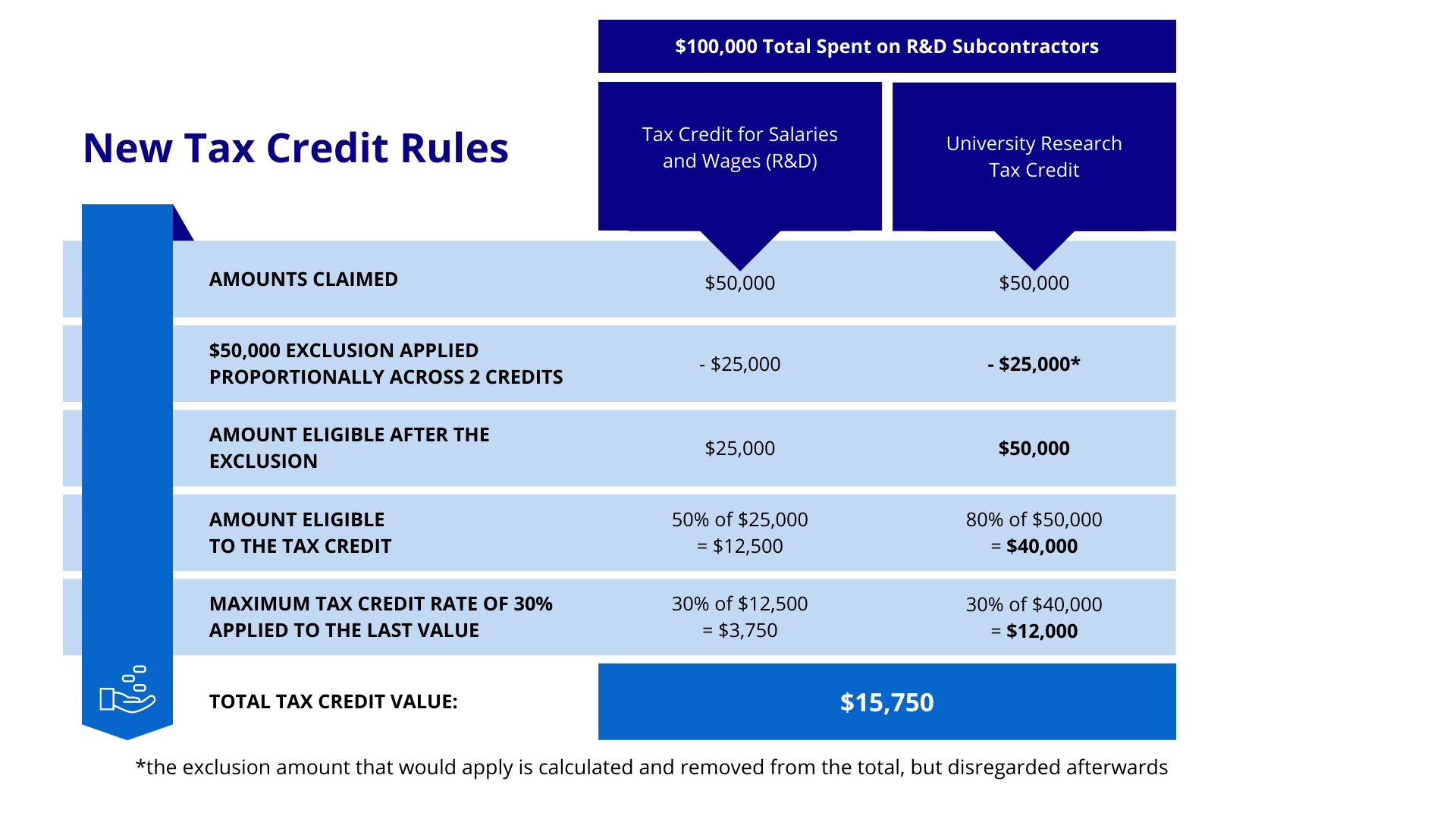R&D Partners is compiling a list of financial aid and other measures created or amended to help businesses struggling in the wake of COVID-19.
We will continue to update this list as the situation progresses, so please check back regularly.
Table of Contents
Federal
Provincial
General
Municipal
Federal
– Grants, Subsidies, & Loans
This program is a three-month measure that will allow eligible employers (individuals, NPOs, charities and/or CCPCs eligible for the small business deduction) to reduce the amount of payroll deductions required to be remitted to the Canada Revenue Agency (CRA). The subsidy is calculated when employers remit federal, provincial, or territorial income tax to the CRA. Payroll remitance of these amounts can then be reduced to obtain the subsidy, up to a maximum of 10% of the remuneration paid and $25,000 per employer.
The Canada Emergency Wage Subsidy initially provided a 75% wage subsidy to eligible employers for up to 12 weeks, retroactive to March 15th, 2020.
The Government of Canada’s Fall 2020 Economic Statement, published on November 30th, proposed to increase the maximum subsidy rate back to its original 75%. It had previously been reduced to 65%. The subsidy is expected to be in place until March 2021.
This new loan guarantee is intended for businesses that were greatly affected by COVID-19 and the lockdown measures. To be eligible, businesses need to have benefited from the CEWS or CERS by showing a 50% revenue decline for at least three months (consecutive or not) in the eight-months preceding their HASCAP Guarantee application. If they were not eligible for CEWS or CERS, businesses could still qualify for HASCAP if they can still show a 50% year-over-year revenue decrease for three months.
BDC will guarantee 100% of a new term loan, with actual amounts ranging from $25,000 to $1 million.
Applications must be submitted to the business’ primary financial institution.
Canadian small and medium-sized businesses from all sectors that were financially viable and generating revenue prior to the COVID-19 outbreak can access credit and cash flow terms loans backed by EDC and co-lending arrangements with BDC. Financial institutions will be able to issue credit and cash flow terms loans of up to $6.25 million to existing clients. These loans will be guaranteed at 80% by the EDC.
This money is to be used for operational expenses, not for dividend payouts, shareholder loans, bonuses, stock buyback, option issuance, increases to executive compensation or repayment/refinancing of other debt.
This program provides term loans for operational and liquidity needs of businesses, which could include interest payments on existing debt. The program is designed in three segments to better support different business sizes:
- Loans of up to $312,500 to businesses with revenues of less than $1 million.
- Up to $3.125 million for businesses with revenues between $1 million and $50 million.
- Up to $6.25 million for businesses with revenues in excess of $50 million.
Loans will be interest-only for the first 12 months, with a 10-year repayment period.
This program will provide interest-free loans of up to $40,000 to help cover small businesses’ operating costs while their revenues are reduced because of COVID-19. Loans that are repaid on or before December 31st, 2022 will receive a loan forgiveness of 25% (up to $10,000). To be eligible, businesses must demonstrate they paid $20,000 to $1.5M in total payroll in 2019.
A new loan of up to $20,000 is being made available in addition to the original CEBA loan. $10,000 of this new loan is also forgivable if the remaining amount is repaid on or before December 31st, 2022.
Applicants should contact their financial institutions in order to begin the application process.
The Government of Canada will support Farm Credit Canada by providing $5 billion in additional lending capacity to producers, agribusinesses and food processors. This is meant to address farmers’ cashflow issues as well as help processors absorb the cost of lost sales.
BDC is offering new relief measures for qualified businesses, including:
- Working capital loans of up to $2 million with flexible repayment terms such as principal postponements for qualifying businesses
- Small business loans of up to $100,000 for businesses that are generating revenue and have been in operation for at least 24 months
- Postponement of payments for up to 6 months, free of charge, for existing BDC clients with total BDC loan commitment of $1 million or less
- Reduced rates on new eligible loans
In order to better support medium-sized companies, BDC will offer loans ranging from $12,5 to $60 million to eligible Canadian businesses.
This program replaces the Canada Emergency Commercial Rent Assistance (CECRA). Businesses, charities and NPOs can qualify for this program. The rent subsidy will be paid directly to tenants or property owners, eliminating the need to go through landlords to apply for the program. Subsidy amounts will be proportional to the business’s revenue drop.
Application periods have been harmonized with the CEWS, with CERS’s period one corresponding to the CEWS period 8 (September 27 to October 24, 2020).
The federal government will provide loans, some of which will be partially forgivable, to Canadian companies affected by COVID-19 for whom previous federal support was unavailable or insufficient. Details such as eligibility, funding amounts, and conditions vary from province to province.
Government of Canada: Canada Seafood Stabilization Fund (CSSF)
This program is offered by different regional agencies across Canada and aims to support fish and seafood processors. Direct aquaculture and fishing enterprises are not covered by this initiative.
The delivery agencies are:
Atlantic Canada: Atlantic Canada Opportunities Agency (ACOA)
Quebec: Canada Economic Development for Quebec Regions (CED)
Canada Enterprise Emergency Funding Corporation (CEEFC) and Canada Development Investment Corporation (CDEV): Large Employer Emergency Financing Facility (LEEFF)
This program will provide loans of $60 million or above to large Canadian employers affected by COVID-19. Companies will need to demonstrate yearly revenues above $300 million, as well as significant operations in Canada, in order to justify their eligibility. The loans will be repayable at any time during the lending term without penalty.
Film and TV productions that have been pre-approved by Telefilm can obtain a reimbursement of up to 20% of their approved, eligible production costs in the case of a filming interruption caused by COVID-19.
The following conditions must be met:
- An Actor or Director declared on the insurance policy covering the project has to have tested positive for COVID-19 or;
- There must be a confirmed COVID-19 outbreak on set and it must cause a production shut down.
In all cases, reasonable and systematic measures must have been taken to prevent the spread of COVID-19 on set, in compliance with public health measures.
The program will offer compensations to eligible productions until March 2021.
– Challenges/Calls for Solutions
The Government of Canada is calling on suppliers capable of providing disposable N95 masks, disposable surgical masks, hand sanitizer, and other products and services to combat COVID-19. If you’re able to help, you can fill out the submission form for Coronavirus disease (COVID-19) products and services.
For more information, contact their info line.
This program will receive $15M in funding to foster collaboration between academia and Canadian SMEs taking up R&D challenges related to COVID-19. To start, the main research areas will be:
- Rapid detection and diagnosis
- Therapeutics and vaccine development
- Digital health
The specific R&D challenges have yet to be announced, but interested researchers and SMEs can register here to begin the team-building process.
Thales Digital Solutions is looking for partners to develop specific solutions to help fight COVID-19 on several fronts. Companies that manufacture and supply medical equipment, as well as healthcare organizations and more are invited to manifest their interest.
– Tax Deferrals
The Canadian Revenue Agency: Flexibility for Businesses Filing Taxes
The Canada Revenue Agency will allow all taxpayers to defer, until after August 31st, 2020, the payment of any income tax amounts that become owing on or after March 18th, 2020 and before September 2020. This relief will apply to tax balances due, as well as instalments, under Part I of the Income Tax Act. No interest or penalties will accumulate on these amounts during this period.
Provincial
ALBERTA
Alberta will help eligible businesses that were affected by mandatory closures–or that remained open but were severely affected,–to re-open and adapt to the new public health guidelines through a first grant of up to $5,000.
A second grant will soon be made available. This amount will be up to $15,000 per business, giving access to up to $20,000 total through the program.
The funds may be used for various expenses essential to business continuity (such as rent or salaries) as well as non-medical PPE and other equipment.
The Government of Alberta has announced the following tax and payment deferrals, including:
- Deferral of corporate income tax balances and installment payments from March 19 until August 31, 2020 to increase employers’ access to cash so they can pay employees, address debts, and continue operations.
- Deferral of electricity and natural gas bill payments for the next 90 days for residential, farm, and small commercial customers. Call your utility provider directly to arrange the deferral.
A call for products and services that can help deal with COVID-19 can manifest their interest through this form.
This program will provide grants to eligible oil and gas industry contractors to close up inactive pipelines and other oil and gas exploitation sites. Projects submitted to this program could see 100% of their eligible costs covered.
There will be multiple application periods, each catering to specific types of projects, sites, and costs.
Eligible Alberta farms and agribusinesses could benefit from a grant of up to $2,000 per eligible new employee (up to $50,000 per employer) to cover various training costs or the purchase of PPE or other materials and equipment related to public health measures.
BRITISH COLUMBIA
Amplify BC is adapting many of its programs to the new COVID-19 reality in order to better support British-Columbia’s musical artists, production companies, concert venues, and event organizers.
MANITOBA
This online platform aims to connect non-medical grade personal protective equipment (PPE) suppliers with businesses who may need PPE to open and operate safely.
The Manitoba Bridge Grant has begun issuing second payments to eligible businesses that submitted applications between November 16 and December 31, 2020.
NEW BRUNSWICK
- Late penalties accumulated on business property taxes due on May 31st will be evaluated on a case-by-case basis. Undue financial challenges such as business closures caused by COVID-19 will be taken into account and late fees may be waived.
- Existing provincial loan and interest repayments could be deferred for up to six months.
Loans of up to $100,000 will be allocated to eligible small businesses to help them respond to challenges associated with COVID-19. Examples of eligible small businesses include restaurants, seasonal tourism operators, service sectors, and self-employed business owners impacted directly by the pandemic. These loans will be interest-free for the first 6 months.
Opportunities New Brunswick (ONB) will make support available to mid-to-large-sized employers. ONB will also provide –upon request–working capital in excess of $100,000 to help large employers manage the impacts of COVID-19 on their operations.
NORTHWEST TERRITORIES
Northwest Territories Business Development and Investment Corporation: Deferred Loan Payments
From April 1st, 2020 to February 24th, 2021, clients of the Business Development and Investment Corporation (BDIC) can apply to reduce or defer up to three months of loan payments without penalty or additional interest charges. Regular interest will still be charged. Businesses are automatically approved and not required to demonstrate financial hardship or impacts resulting from the COVID-19 crises. Businesses only need to notify their Department of Industry Tourism and Investment regional office that they wish to suspend their payments and specify the three month time period in which they need the suspension to take effect.
NOVA SCOTIA
This 25% tax rebate is available to operators of qualified roofed tourism accommodations (like hotels, motels, bed and breakfasts…) who have incurred a 30% or more revenue loss from 1 April 2020 to 31 October 2020 compared to the same period in 2019.
This program offers financial help to Halifx and Hants county that were forced to close or reduce operations under public health directives in effect from 26 November 2020. The program will offer funding amounts of up to %15 of the business’s revenue from sales for the month of April 2019 or February 2020 as selected by the applicant.
Eligible businesses include restaurant, bars, gyms and various leisure facilities, from escape rooms to board game bars and restaurants.
NUNAVUT
Nunavut small businesses can access short-term relief in the form of a $5,000 non-repayable contribution.
ONTARIO
This new grant is intended for businesses ordered to shut down or severely curtail their operations by the provincial lockdown put in place on December 26th, 2020. To qualify, businesses need to demonstrate a 20% revenue loss compared to the same period in the previous year. Alternative comparison periods are accepted in the case of seasonal businesses.
These grants from $10,000 to $20,000 are intended to offset this revenue loss and businesses may use the funds for any necessary expenses.
This program offers a grant of up to $1,000 to help cover PPE (Personal Protective Equipment) purchase costs. Eligible businesses can have between 2 and 9 employees.
This program provides a one- time, on-bill credit to eligible small business and registered charity customers affected by COVID-19 to help them catch up on their energy bills and resume regular payments.
Businesses can apply for a $1,500 rebate.
Due to COVID-19, OAC’s 2021 Touring and Market Development program is temporarily on hold and is replaced by this program. The goal is to keep developing relationships and artistic projects while touring is suspended.
Businesses that were forced to close or significantly curtail their operations due to new lockdown measures may be eligible for a grant to help cover their property tax or energy bills.
This tax exemption has been bonified from $490,000 to $1 million for 2020 in order to relieve some of the tax burden on eligible Ontario employers.
$1.9 billion will go to the Workplace Safety and Insurance Board (WSIB) to allow employers to defer their payments by up to six months.
This new refundable Corporate Income Tax Credit is designed to support regions where employment growth is lagging behind the rest of Ontario. It will help eligible businesses to save up to $45,000 (10% tax credit rate) on the construction, renovation or acquisition of commercial or industrial buildings.
Ontario businesses who are unable to file or remit select provincial taxes on time, due to the special circumstances caused by the coronavirus (COVID‑19) in Ontario, will benefit from a five-month relief period to file or pay them. The payments remain due at the normal dates, but no late fees or interests will accumulate for five months, starting on April 1st, 2020. This relief is automatic, that is businesses that find themselves unable to meet tax deadlines do not need to contact the Ontario Ministry of Finance to notify them.
Ontario Call for Suppliers and Solutions: Emergency Products
Producers, manufacturers and suppliers are invited to fill out this form if they have any supplies which can be used to fight COVID-19.
Suppliers and innovators are invited to submit proposals to help address the spread and impact of COVID-19. Businesses that can support virtual mental health services, supply chain monitoring, or financial advice for small businesses are invited to submit their proposals.
OCE is looking to match collaborators with access to assets, technologies or products which could be instrumental in fighting the COVID-19 virus.
Application here.
This technological challenge calls on Quebec and Ontario SMEs to develop innovative 5G solutions to help Canada become more resilient when facing situations such as the COVID-19 pandemic.
A wide variety of economic sectors could benefit from the proposed solution, from the health sector to manufacturing, transportation and more.
This program aims to help Ontario businesses to implement technological strategies and tools to facilitate their digital transformation and increase their online presence.
PRINCE EDWARD ISLAND
This new loan program will help qualifying companies maintain normal business operations during these difficult times. Eligible applicants can apply to receive a working capital loan of up to $100,000 with a fixed interest rate of 4% per annum to be used to assist with fixed operating costs.
To be eligible, a business must:
- be located, operating, and generating revenue in the Province of PEI
- be registered to conduct business within the Province of PEI
- have a satisfactory credit rating and no defaulted outstanding debt obligation on file in the Province’s Central Default Registry
These loans of up to $25,000 are intended for eligible fisheries or aquaculture businesses operating in PEI. Borrowers will benefit from deferred interest payments for a maximum of 18 months.
QUEBEC
Loans of $5 million or more to Quebec companies that can demonstrate that they were profitable before the start of the COVID-19 crisis and have a promising growth outlook in their sector. Companies from all sectors and sizes may apply.
This measure is designed to shore-up Quebec businesses’ working capital in response to temporary difficulties they may be experiencing as a result of COVID-19. To be eligible for funding, they must demonstrate that:
- their financial structure offers realistic prospects for profitability outside of these extraordinary circumstances. Financing can also take the form of a loan from Investissement Québec, but guarantees will be the preferred funding method.
- their cash flow issues are temporary and that the liquidity shortage stems from:
- A problem involving the supply of raw materials or products (goods or services)
- An inability, or a substantially decreased ability, to deliver goods, products or services
This new stream of the PACTE is intended for businesses located in “Red zones” currently under maximum alert and targeted by government-mandated closures. Some examples of eligible industries for this special stream include:
- Restaurants;
- Theatres;
- Bars;
- Museums;
- Spas;
- and more.
The main difference between the original PACTE and this special stream is that 80% of the loan (up to a maximum of $15,000 for each month of closure) can be written off.
This program funds projects according to three streams, two of which are reserved for COVID-19 struggles encountered by the tourism industry in Quebec:
- Stream one is intended to help tourism businesses adapt their workplaces to meet the new public health guidelines regarding COVID-19.
- Stream two will focus on collective projects that will help tourism-sector SMEs to adapt to the new COVID-19 guidelines and restrictions.
Businesses must contact their regional tourism associations in order to access the application form and obtain more details about the program. Funding amounts will depend on the specifics of each project.
The new stream of the Concerted Temporary Action Program for Businesses offers the same loan guarantees as it does to all other eligible sectors, with a few new, advantageous conditions for the tourism sector:
- A 24-month moratorium on reimbursement of capital;
- A repayment term of up to 60 months after the end of the moratorium;
- And no minimum loan amount
This new stream of the “PADAT” will provide term loans to eligible hotels for the purposes of facilitating major renovations in order to boost the tourism sector in Quebec after COVID-19. Loan amounts will range from $100,000 to $5 million and cover up to 80% of eligible expenses. All costs directly related to the approved construction or renovation activities could be deemed eligible, including equipment and furniture expenses, among others.
The SODEC is offering this new program to help the film and TV production recover from the financial impact of the COVID-19 crisis.
Two streams were available, the first offering general support to production activities and the second one emergency grants meant to offset the cost of interrupting a production because a member of the cast or one of the directors received a positive COVID-19 diagnostic. The second stream has now been terminated, but general support remains available.
Exceptional support for SODEC-supported sectors. These new support measures include a new line of credit, a new loan guarantee and a new term loan.
As short-term support, Quebec government will offer loans or loan guarantees of up to $50,000 to Quebec SMEs.
Eligible businesses include:
- Those in all sectors that are otherwise viable
- Those significantly impacted by COVID-19
- Those that have cash flow issues directly related to the impacts of the pandemic
This new stream of this emergency support program is intended for businesses located in “Red zones” and affected by government-mandated closures.
This stream offers the possibility to forgive up to 80% of the loan (up to a maximum of $15,000 per month of closure).
Financière agricole du Québec (FADQ): Loan guarantee
FADQ financing clients experiencing temporary cash flow issues due to the COVID-19 pandemic can now access loan guarantees for loans of up to $50,000.
The Quebec government has announced several measures that will benefit the tourism industry, hard hit by COVID-19. A total of $750 million is expected to be spent across various programs and measures.
This technological challenge calls on Quebec and Ontario SMEs to develop innovative 5G solutions to help Canada become more resilient when facing situations such as the COVID-19 pandemic.
A wide variety of economic sectors could benefit from the proposed solution, from the health sector to manufacturing, transportation and more.
La Piscine and SODEC: SURF
La Piscine is partnering with SODEC to offer support to the businesses and non-profits of the cultural industry. Group coaching sessions will help participants address their particular challenges related to the pandemic.
The program is entirely offered online.
YUKON
The Department of Tourism and Culture has announced a one-time, $1 million increase to the Tourism Cooperative Marketing Fund (TCMF) in the interest of helping support more businesses in the summer when the pandemic subsides. Where the fund previously covered 50% of marketing costs it will now cover 100%. It will also be extended to cover initiatives targeting people already in the Yukon.
This program will reimburse employers who pay their employees to take sick days and self-isolate. The rebate will cover a maximum of 10 days of wages per employee, up to $378.13 per day per employee. This program can also support self-employed workers who lose income due to taking sick leave.
Provincial – General
MANITOBA
Until October 1st 2020:
- Manitoba Hydro, Centra Gas, Workers Compensation Board and Manitoba Public Insurance (MPI) will not charge interest or penalties.
- Manitoba Hydro and Centra Gas will not disconnect any customers.
- MPI will relax ordinary practices on policy renewals and collections.
- Interest will not be charged on education property taxes.
- Manitoba Liquor and Lotteries will not charge restaurants receivables.
NOVA SCOTIA
Small and medium-sized businesses in Nova Scotia will receive $161 million to help them weather the economic storm caused by COVID-19.
ONTARIO
The government of Ontario has pledged $17 billion to fight COVID-19. Of this amount, $200 million will provide emergency support for individuals experiencing financial difficulties, and to municipalities and other services so they can quickly respond to local needs. How this amount will be divided and administered has yet to be disclosed.
A $1.5B increase in electricity cost relief will make electricity bills more affordable for eligible residential, farm, and small business consumers. In addition, the Province is also setting electricity prices for time-of-use customers at the lowest rate, known as the off-peak price, 24 hours a day for 45 days, to support ratepayers in their increased daytime electricity usage as they respond to the COVID‑19 outbreak.
Other measures (with no clear guidelines to date) include:
- $200M for research institutions, industry, and nonprofit scientific partners to develop tools and resources to combat COVID-19 and related diseases.
- $100M in skills training for workers affected by the outbreak.
Municipal
MONTREAL
Municipal Government of Montreal: Business Support Hotline
Montreal is offering a hotline for small business owners looking for general information about assistance programs as well as answers to questions about support measures offered by the city. The hotline is open 8 a.m. to 5 p.m., Monday to Friday.
To decrease wait times on calls, business owners are encouraged to ask their questions via a short online questionnaire. They will receive an answer from a city economic development advisor within four hours, between 8 a.m. and 5 p.m., Monday to Friday.
Fill out the form (French).
Or call: 514 394-1793
The PME MTL network is partnering with the Fonds de solidarité FTQ to offer an automatic, six-month moratorium on capital and interest to private and social economy businesses that have received a loan through the PME MTL fund, Fonds Locaux de Solidarité, and Fonds de commercialisation des innovations. This measure is effective as of March 19th, 2020.
Clients of PME MTL can contact their advisor for more information.
This $200,000 fund is meant to ensure socio-economic vitality on LaSalle’s commercial arteries and to maintain commercial diversity despite the impact of COVID-19. Targeted sectors are those particularly affected by the pandemic such as retail, food services and personal services.
EDMONTON
Phase 1 of the Edmonton Economic Recovery Grants will be delivered as micro grants ranging from $1,000 to $5,000. Businesses may use these funds to purchase equipment and services needed to adapt their business to the new public health measures and allow them to resume their activities more quickly. Eligible businesses can come from any sector of activity, but must demonstrate that they have experienced significant financial hardship as a result of the pandemic and the related public health closures, restrictions, and measures.
Businesses can apply every Monday of the intake period, which will end in December 2020.
Phase 2 funding will begin rolling out in 2021 and will address more long-term recovery and development goals. It is important to note that businesses that receive funding under Phase 1 will not be eligible for Phase 2 funding.
For general information about COVID-19, visit the Government of Canada.
Stay home and stay healthy!
